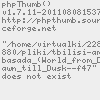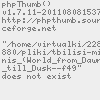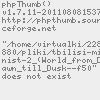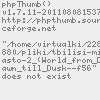Polish Documentary School
Tbilisi (11 June – 14 June 2013)
Participants: Mirosław Dembiński, Rafał Listopad, Paweł Łoziński, Victoria Ogneva and Mateusz Werner
The first day, after a fascinating visit in the National Museum, where we had the opportunity to see 6,000-year-old treasures of Georgian culture discovered by archaeologists, there was an impromptu meeting with a number of TV stations in the nearby Rustaveli cinema. Mirosław Dembiński was interviewed by them as the creator and producer of the project “The World from Dawn to Dusk”. Paweł Łoziński’s film Chemia was shown after wards in a cinema to a packed house. After the screening, which was greeted by lengthy applause, there was a lively discussion with the film’s director, facilitated by Mateusz Werner. The excited audience, consisting mainly of students from the Theatre and Film Georgian State University (TAFU) asked very personal questions, but also wanted to find out about the technical details connected with making a film, particularly how to achieve the impression of natural intimacy between the characters, uncontaminated by the presence of a camera and microphone.
The next day began early with a visit to a live programme Morning with Imediat Imedi TV, a private television station, where Mirosław Dembiński and Paweł Łoziński talked about the project “Tbilisi from Dawn to Dusk”. Afterwards we were guests at the Georgian National Film Centre, where we were welcomed by director Nana Janelidze. The most important point of the conversation were our plans for workshops, and also a description of the Polish model of financing film production and the practical functioning of the Polish statute concerning cinematography. Nana Janelidze expressed the desire to visit Warsaw and find out how the Polish Film Institute works. We went straight from the office of the Film Centre to the picturesquely located TAFU, where we were warmly greeted by the dean Dato Janelidze and our main host, Otar Litanishvili, who also lectures in directing.
The intensive meeting with degree students of directing, editing, production and camera operation chiefly served to present the project’s main idea, its artistic and organisational foundations, and was also meant to allow the future tutors: Paweł Łoziński and Rafał Listopad to get to know the future participants in the workshop. The students showered us with questions about our expectations, and we, in turn, wanted to find out about their original ideas for a documentary film about their home town. A few hours later we met once more in the House of Cinema for a screening of films by the tutors, taken part in by Mirosław Dembiński, after whose Belorussian Lesson a fascinating discussion took place.
The next day was spent visiting the remarkable David Gareja monastery located in the remote Kacheti Mountains right on the Georgian-Azerbaijan border and strengthening of the bonds of friendship with our wonderful hosts from TAFU: Otar and Dato, who – as we drove – treated us to endless historical stories, anecdotes from the Soviet era and facts about life in Georgia today. The expedition made us aware of the antiquity of Georgian culture and its uniqueness: a combination of Asian exoticness with an unbroken and original Christian tradition. However, on the way we passed Rustavi, like a menacing memento, a ghost town consisting of crumbling tower blocks which recall the era of Khrushchev…
We began our last day in Georgia’s capital with a visit to the Polish Embassy, where we received moral support for our plans to finish our stay with a screening of films by students and tutors in the National Library, after which we had yet another discussion with students. Clearly affected by the films, they admitted honestly that they had never realised a documentary film could be a work of art; the personal, subjective voice of artists expressing themselves, observing the world and following their characters. That’s would they would like to learn from the Polish tutors and they were given the promise of being given the opportunity to do so.
.png)
.jpg)
.jpg)
.jpg)
.png)
.jpg)
.png)

-resizer-1920_(World_from_Dawn_till_Dusk--f530).jpg)
_(World_from_Dawn_till_Dusk--f353).jpg)
_(World_from_Dawn_till_Dusk--f336).jpg)
_(World_from_Dawn_till_Dusk--f374).jpg)
-resizer-1920_(World_from_Dawn_till_Dusk--f540).jpg)
_(World_from_Dawn_till_Dusk--f380).jpg)
-resizer-1920_(World_from_Dawn_till_Dusk--f414).jpg)
-resizer-1920_(World_from_Dawn_till_Dusk--f426).jpg)
_(World_from_Dawn_till_Dusk--f630).jpg)
-resizer-1920_(World_from_Dawn_till_Dusk--f434).jpg)
-resizer-1920_(World_from_Dawn_till_Dusk--f460).jpg)
-resizer-1920_(World_from_Dawn_till_Dusk--f472).jpg)
_(World_from_Dawn_till_Dusk--f635).jpg)
-jpg_(World_from_Dawn_till_Dusk--f641).jpg)
-resizer-1920_(World_from_Dawn_till_Dusk--f480).jpg)
_(World_from_Dawn_till_Dusk--f676).jpg)
.jpg)
.jpg)
.jpg)
.jpg)
.jpg)
.jpg)
.jpg)
.jpg)
.jpg)
.jpg)
.jpg)
.jpg)
.jpg)
.jpg)
.jpg)
_(World_from_Dawn_till_Dusk--f1189).jpg)
_(World_from_Dawn_till_Dusk--f1155).jpg)
_(World_from_Dawn_till_Dusk--f1254).jpg)
_(World_from_Dawn_till_Dusk--f1339).jpg)
_(World_from_Dawn_till_Dusk--f1293).jpg)

